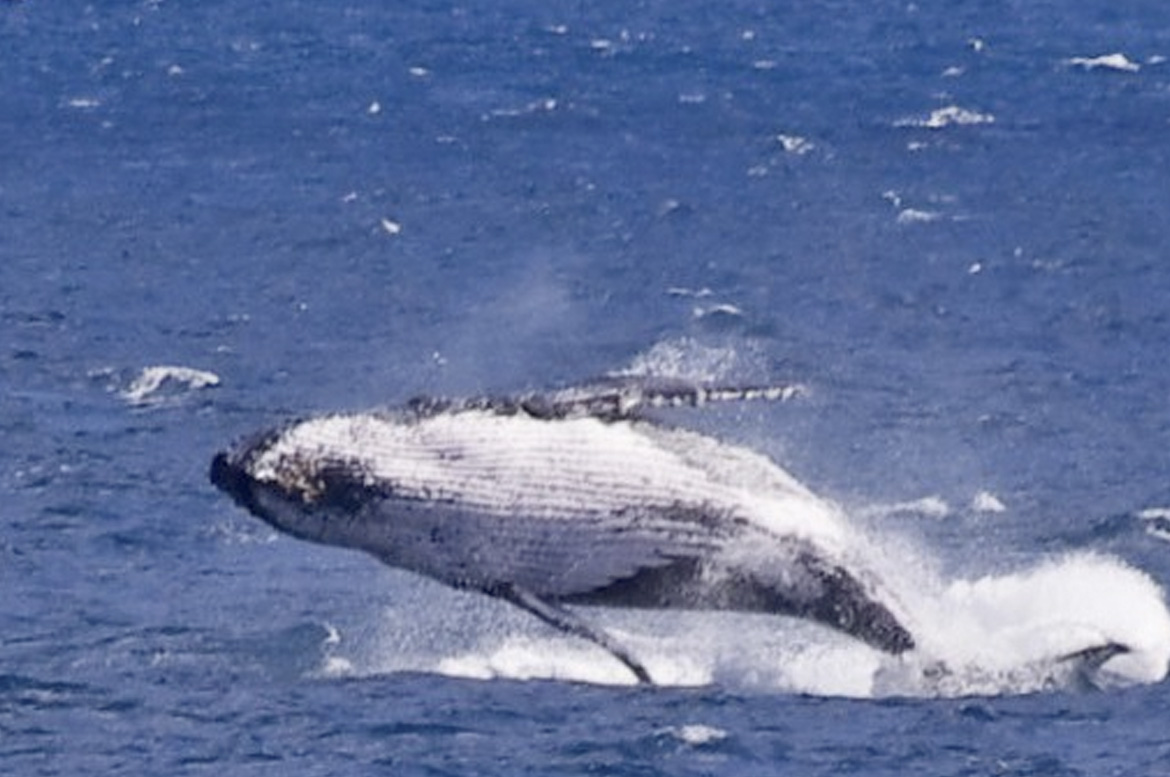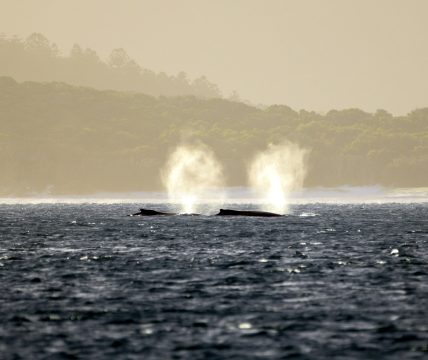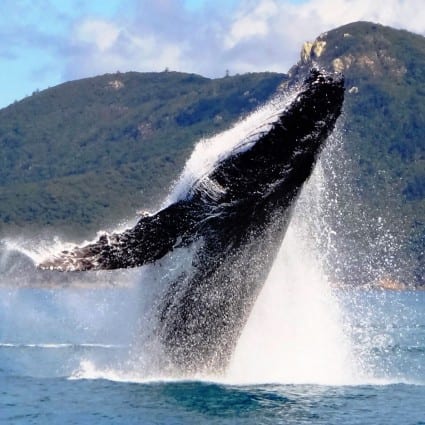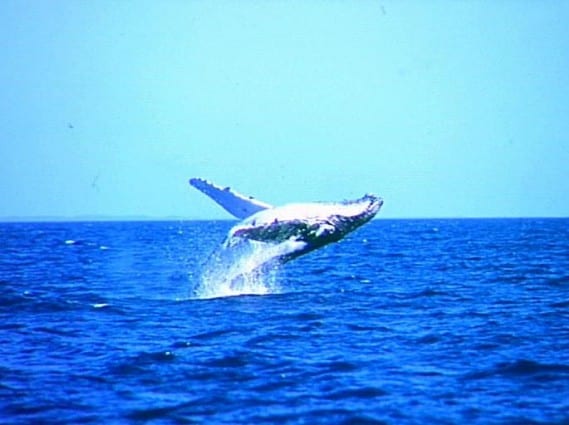Winter is Whitsunday whale season
Whale watching in the Whitsundays is a beautiful experience, and something you can do almost every day when you charter a bareboat between June and August.
The Whitsunday Islands are known as a whale watching hot spot. Whales choose the warm calm, protected waters around Airlie Beach and the islands of the Whitsundays to give birth to their young each year. It’s not uncommon to see a brand new whale calf taking its first breaths and being taught how to swim by its mother.
Humpback whales are a common sighting in the Whitsundays, and sometimes pilot whales too. The Whitsundays has been known as a spot where Migaloo the white whale has been spotted on numerous occasions, and Chalkie the white whale was born here as well.
DID YOU KNOW?
A whale is not a fish, it is a mammal. It breathes air.
Whale behaviour
Whales are known for their breaching – where they shoot up and out of the water, landing with a great big splash. Humpback whales use their strong tail fin, known as a ‘fluke’, to propel themselves through the water and sometimes completely out of it. Scientists aren’t sure if this breaching behaviour has a purpose, such as cleaning their skin, or if they do it just for fun! (We think it looks pretty fun)
Scientists aren’t sure if this breaching behaviour has a purpose, such as cleaning their skin, or if they do it just for fun! (We think it looks pretty fun)
Whales eat plankton, krill and small fish, but only in the summer in their Antarctic home. While migrating north, they live off stored fat reserves.
Mothers and their calves swim so close together, and they often touch their flippers. Turns out whales are affectionate mothers too! Whales are nursed for about a year, but they don’t reach full adulthood until about 10 years of age.
DID YOU KNOW?
A humpback whale’s tail fin is so unique, with their black and white markings and scalloped edges, that they are as identifiable as a human fingerprint?
Safe whale watching practices
It’s very important that the whales are not disturbed. To ensure their continued survival, they need to feel safe in the ‘nursery’ where they deliver their young. It’s important to stick to the restrictions issued by GBRMPA for safe whale watching.
In the Whitsundays, we have a Whale Protection Area in place. That means no vessels* are permitted to go within 300m of a whale.
Having said this, whales can be curious creatures and have often been known to swim up to boats to have a good look around. If a whale approaches your boat, turn off all engines and let it swim around safely near you.
*A vessel is described as anything capable of carrying a person through or on the water, including non-motorised watercraft such as kayaks and paddleboards.
The rules when boating around whales are:
- Be alert and watch out for whales at all times, particularly during whale migration season (May to September)
- Post a look out to keep an eye out for whales if they are suspected in the vicinity
- Do not approach or disturb mothers and calves – never place a boat between them
- Always move in a parallel direction to the whale or dolphin
- Do not use engine sound or speed to attempt to influence the behaviour of a whale
- When you’re leaving an area where whales were present turn the motor on, post a look out, and move off slowly
- Slow down to minimise the risk of collision where whales have been sighted
- Report any boat strikes and reassure your passengers that the relevant authorities have been contacted to assist the whale.
When viewing whales and dolphins
- Never try to overtake whales or dolphins
- Avoid making sudden noise, speed or direction changes
- Be quiet when you are near a whale or dolphin
- Let the whale or dolphin control the situation – do not try to round up or herd
- Move away immediately if the whales or dolphins suddenly change behaviour and appear agitated. Behaviours that indicate that boats should move away include:
- Bumping the vessel
- Rapid changes in swimming direction or speed
- Erratic behaviour
- Escape behaviour such as prolonged deep dives
- Tail slapping or swishing.
Want to go whale watching by bareboat in the Whitsundays?
Book a bareboat holiday with Whitsunday Escape in the winter months and you can have your own whale watching experiences around the Whitsunday islands. Need help working out which boat will suit your group and level of experience? Contact our friendly reservations team for a recommendation.






